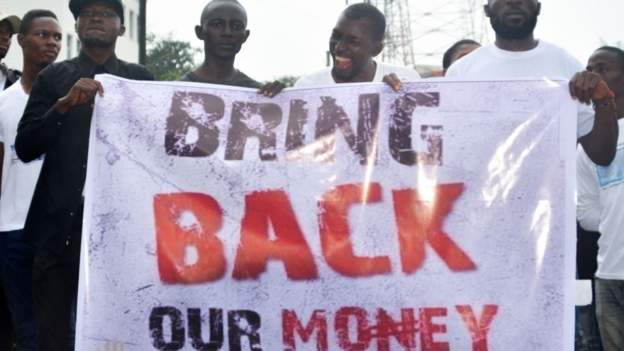The streets of Liberia’s capital, Monrovia, are usually heaving with Christmas shoppers at this time of year – crowding around vendors to buy in treats for the festivities.
But this week hawkers have been standing around for hours without a single customer showing interest. “It is a troubling sign when you have more sellers than buyers,” a honey seller on Carey Street told me.
The major reason for this is that for more than a month now people have not been able to get hold of cash from their banks – and that’s where the crowds are.
Someone wanting to withdraw, for example, 25,000 Liberia dollars ($160: £127) is given just 5,000 Liberian dollars ($36) – and that is after waiting days in a queue.
The cash shortage appears linked to the mystery over the alleged disappearance in March of more than $100m-worth (£76m) of newly printed bank notes intended for the central bank.
The notes allegedly vanished from containers in Monrovia’s port and airport – and the government ordered an investigation in September – though that is likely to take months, if not years, to complete.

He accused the banks of “playing games” as the government injected $25m into the economy in July to shore up the falling value of the Liberian dollar – though how exactly this was done has remained a subject of public debate.
Most Christmas days will see children playing on the beaches and hanging out at entertainment arcades. But with no money to celebrate, most people are likely to be staying indoors.
As if pre-empting this, President George Weah, the former footballer who came to office in January, advised people to remain at home to play “gospel songs and Christmas carols”.
This has done little to soothe the disappointment of the many Liberians who love the traditions of Christmas.




















